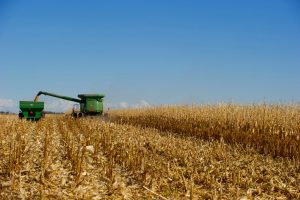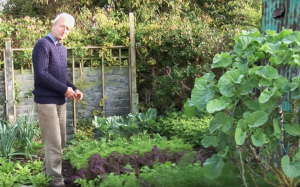
Corn Monoculture
This was such an engaging course looking at the politics, policy, and environmental consequences of the world food system. It is so much more complicated and interconnected than I had imagined. I think my biggest takeaway is the connection between industrial agriculture practices and climate change. Industrial farming has removed people from being connected to the land. Monoculture production of crops creates a haven for pest and disease and disrupts the natural systems build over eons to defend against them. The part soil plays in the ecosystem is also being altered. Soil degradation leads to declining yields and more importantly its natural role as a carbon sink (absorbing more carbon that it emits) has reversed making industrial agriculture a major contributor to climate change.
Before this course my outlook was very different, I thought since I do not work in a field associated to food policy I didn’t have much choice when it came to influencing the food system. Now I have a new goal; home, garden, life. My family and I are moving in two weeks and we have purchased a home on half an acre with the intention of creating an urban sustainable garden, building an abundant food source for our family and doing our part to return our soil to its natural role as a carbon sink.

Our new home will go from looking like this to…

… an abundant biologically diverse ecosystem like Charles Dowding grows on his small plot of land in the UK.
My husband and I have been learning about sustainable gardening on a small plot, composting our waste products, and raising chickens. We have two children still at home and we see this as an opportunity to educate them about food and sustainability and give us a way to disconnect from the industrial agriculture policy that we do not agree with. We can make a difference through individual action and community engagement. The immense amount of YouTube channels and websites devoted to sustainable urban farming tells me that we are not alone. The new political movements springing up around the world are inspiring, from young people in the US and Africa taking up small-scale farming and education to large organic companies like Stonyfield selling their products at Wal-Mart. Although I felt a sense of doom and was often overwhelmed learning about the scale of problems surrounding the world food system, I have come out on the other side with a renewed excitement that progress is being made and that my family and I can have a place in it.
